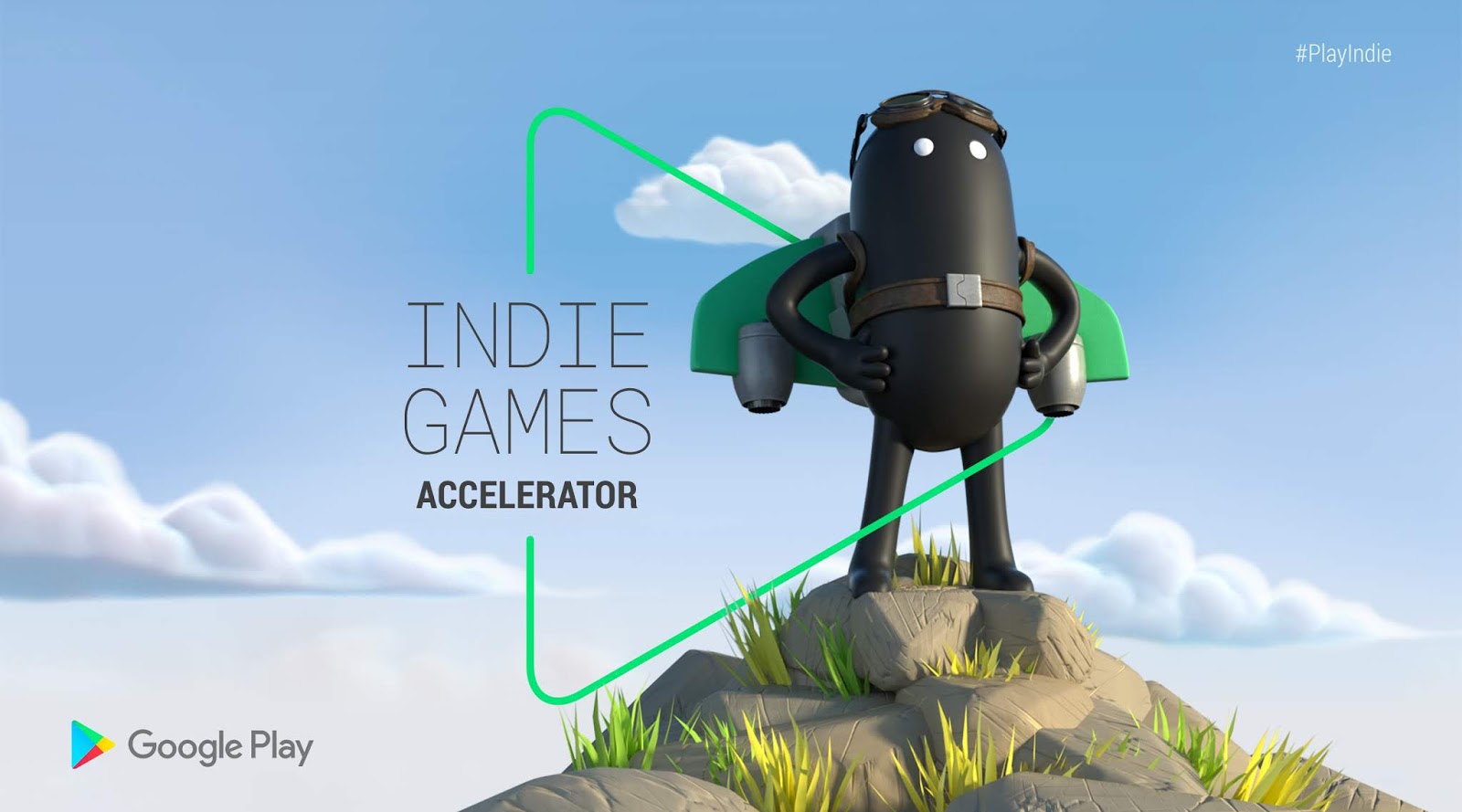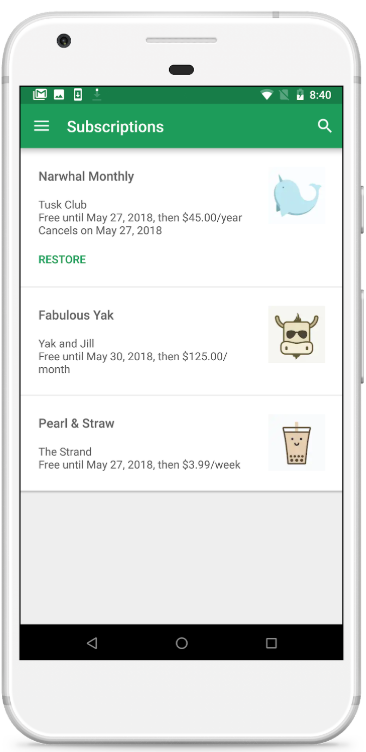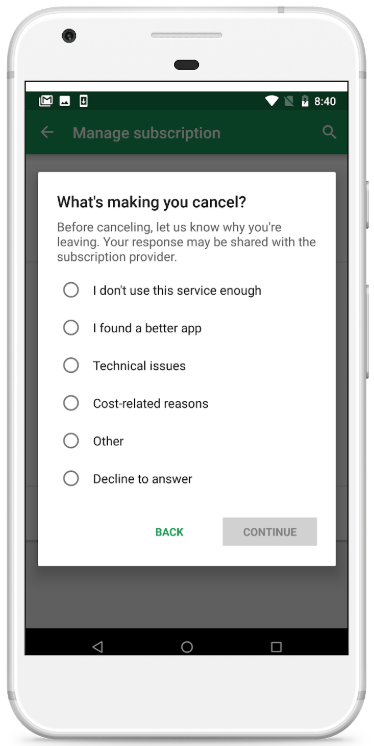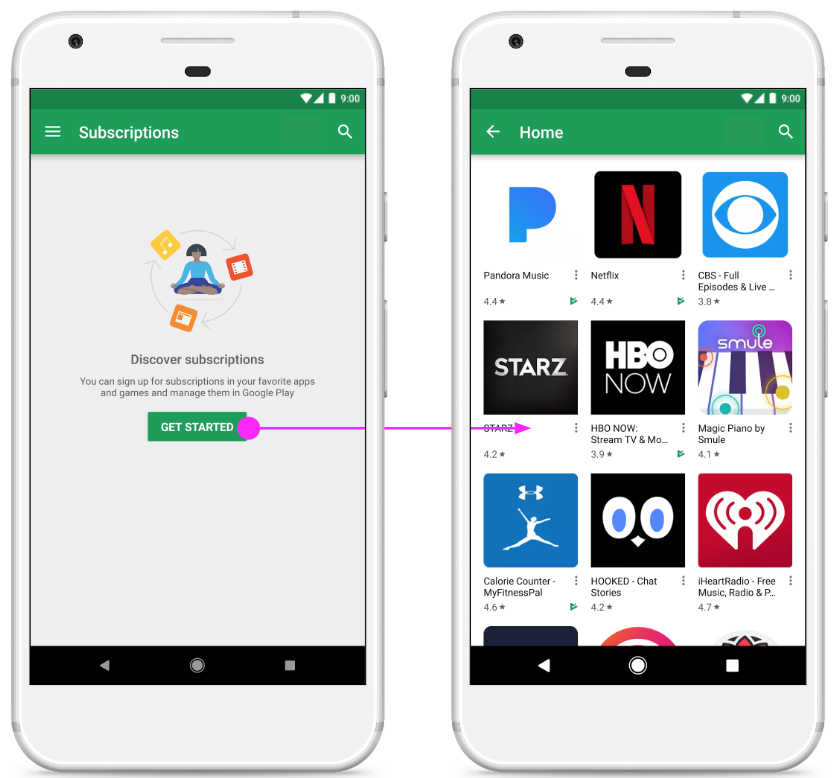Posted by Matt Henderson, Product Manager, Google Play
Today we are kicking off Playtime, our annual global event series, hosting over 800 attendees in Berlin and San Francisco to share insights from experts around the world and the latest updates on our products. This will be followed by events in Sao Paulo, Singapore, Taipei, Seoul, and Tokyo.
At Google Play, we continue to invest in tools that make it easier for you to develop and distribute your apps to a global audience. Below are some of the exciting updates we are announcing today:
Building smaller apps
The Android App Bundle is Android's new publishing format, with which you can more easily deliver a great experience in a smaller app size. Smaller apps have higher conversion rates and our user research shows that app size is a leading motivator in driving uninstalls. With the Android App Bundle's modularization, you can also deliver features on demand, instead of at install time, further reducing the size of your app.
Thousands of app bundles are already in production, with an average size reduction of 35%. Today, we are announcing updates that offer additional reasons for you to switch to the bundle.
- More size savings: app bundles will now be on average 8% smaller on download and 16% smaller on device on M+ devices with no additional developer work. These new savings come from supporting uncompressed native libraries, which eliminates the need to store multiple copies on the device.
- Easier to switch: you can now build app bundles in the Android Studio 3.2 stable release and in Unity 2018.3 beta.
- Improved support for large apps: you can now upload large app bundles with installed APK sizes of up to 500MB without needing to use expansion files. This feature is in early access and we will roll it out to all developers in the future.
To learn more about the Android App Bundle, dynamic features, and all the benefits you receive from building a smaller, modular app, read our Medium post.
Building a unified instant experience
We've been listening to your feedback to make it easier to build instant apps, and we recently increased the size limit to 10MB to enable TRY NOW on the Play Store and removed the URL requirement. For game developers, we've partnered with Unity on a Google Play Instant plug-in and have built instant directly into the new Cocos Creator.
We’re now using the Android App Bundle to solve one of the primary pain points of building instant apps. Previously, you needed to publish both an instant app and an installable app. With Android Studio 3.2, you could publish instant-enabled bundles but you were still required to publish a primary app bundle.
Now, you don't have to maintain separate code. With the Android Studio 3.3 beta release, a developer can publish a single app bundle and classify it or a particular module to be instant enabled. The unified app bundle is the future of instant app experiences and we hope you will try it out.
Extending instant trials
Google Play Instant is now available for premium titles and pre-registration campaigns, so people can try your game before it launches and generate additional buzz. New apps and games join Google Play Instant every day, and we're excited to welcome Umiro, by Devolver Digital, and Looney Tunes World of Mayhem, by Scopely, as some of the first to take advantage of these new features.
Reducing crash rates and improving quality
The Play Console offers two tools to help you monitor performance and improve the quality of your apps. The pre-launch report runs your apps on real devices situated in the Firebase Test Lab and generates useful metadata to help you identify and fix issues before pushing your apps to production. Android vitals helps you track the performance and quality of your app on users' devices in the real world.
Now, we're linking them together to provide more actionable insights. Whenever a real-world crash in Android vitals is also seen during a pre-launch report execution, you'll get all the extra metadata from the pre-launch report available to you in the Android vitals dashboard so you can debug more effectively. This is also linked in both directions, so that if a crash occurs in pre-launch reports that is already happening in the real world, you'll be able to see the current impact in Android vitals which will help you better prioritize the issues highlighted by pre-launch reports.
Optimizing your app and business
We've made several updates to make it easier to manage your app and business with Play.
- Tools for retaining subscribers: at I/O we introduced the cancellation survey, where you can get insights into why your subscribers are canceling. Now we're testing the ability for users to temporarily pause their subscriptions instead of outright canceling, and giving you the ability to deliver promotions to win back canceled subscribers.
- More flexible subscription pricing: you can now change the price of an existing subscription without needing to create a new SKU in Play Billing Library version 1.2. You can also offer a plan change and make the change effective at the existing renewal date.
- More powerful metrics: we've added new tools in the Play Console to help you evaluate your core metrics. Additions include cumulative data, 30-day rolling average metrics, and roll-ups for different time periods to better match the cadence of your business. You can also download any configured reports as a CSV file.
- Easier app updates: you can now prompt users to update without leaving your app with a new API called In-App Updates. Developers can either show a full screen experience that takes the user from download to restart, or help the user download and install in the background with graceful state monitoring. This program is currently in early access and will roll out in the next few months.
A new way to learn about Play
We're equally excited to launch the Academy for App Success with new interactive courses to help developers get the most out of the Play Console, understand Play policies, and utilize best practices to improve quality and increase business performance. This free new program allows you to track your learning progress with quizzes and achievements to demonstrate your expertise. Available in English today, new content and translated courses will be added soon.
We continue to be inspired by what you build and the impact you have on people around the world. Check our #IMakeApps collection which celebrate some amazing people who create apps and games and share your #IMakeApps story.How useful did you find this blog post?






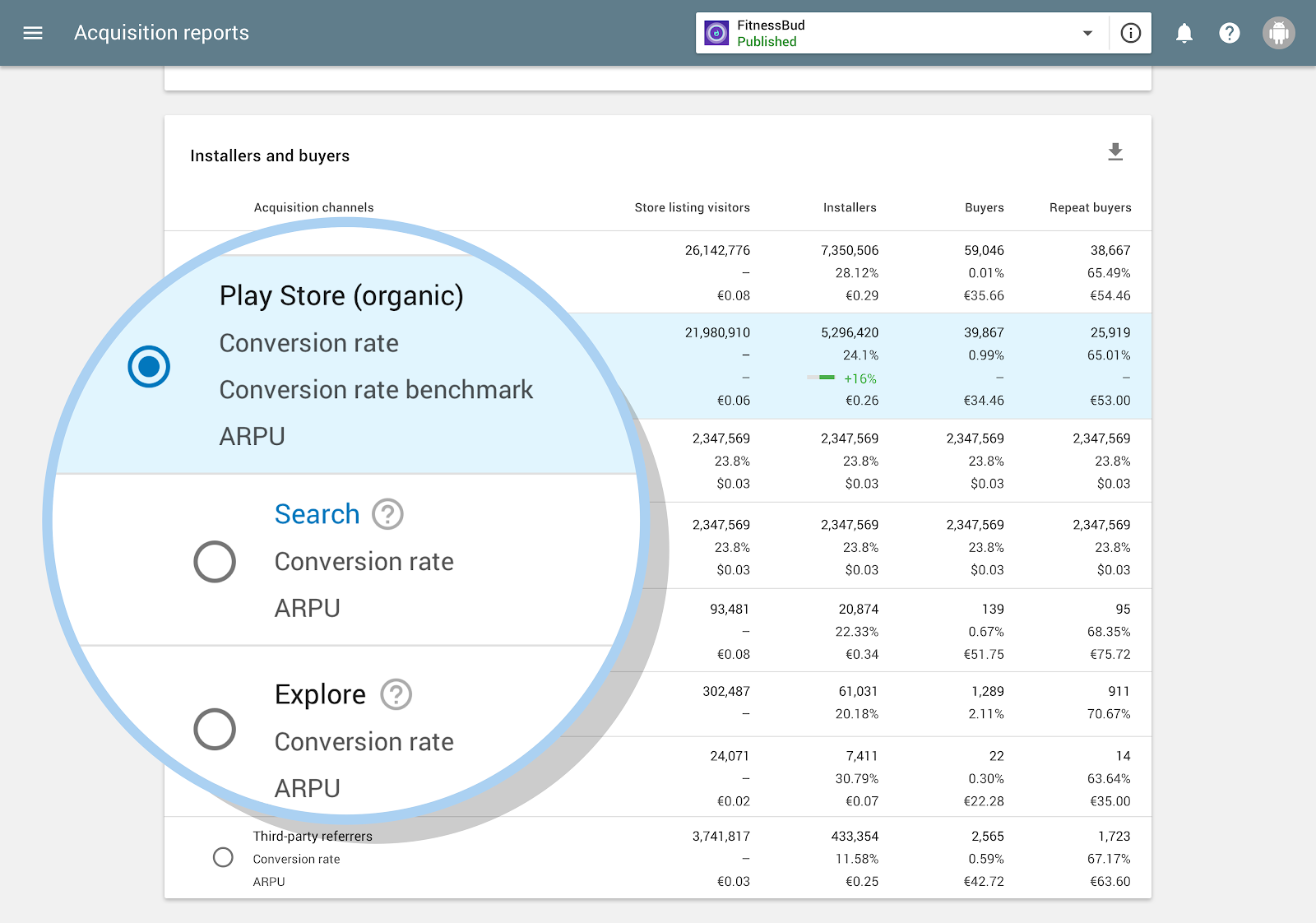
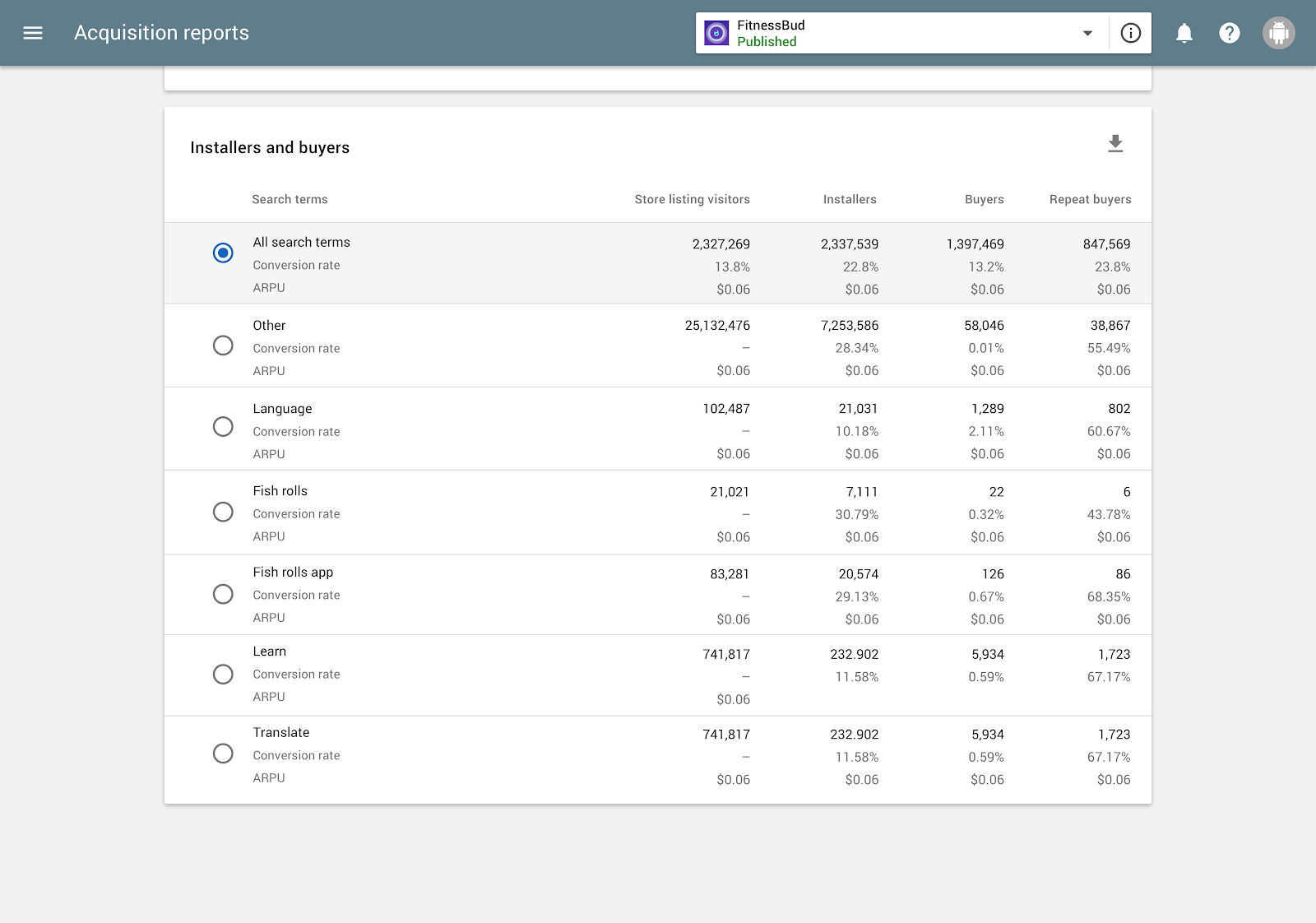



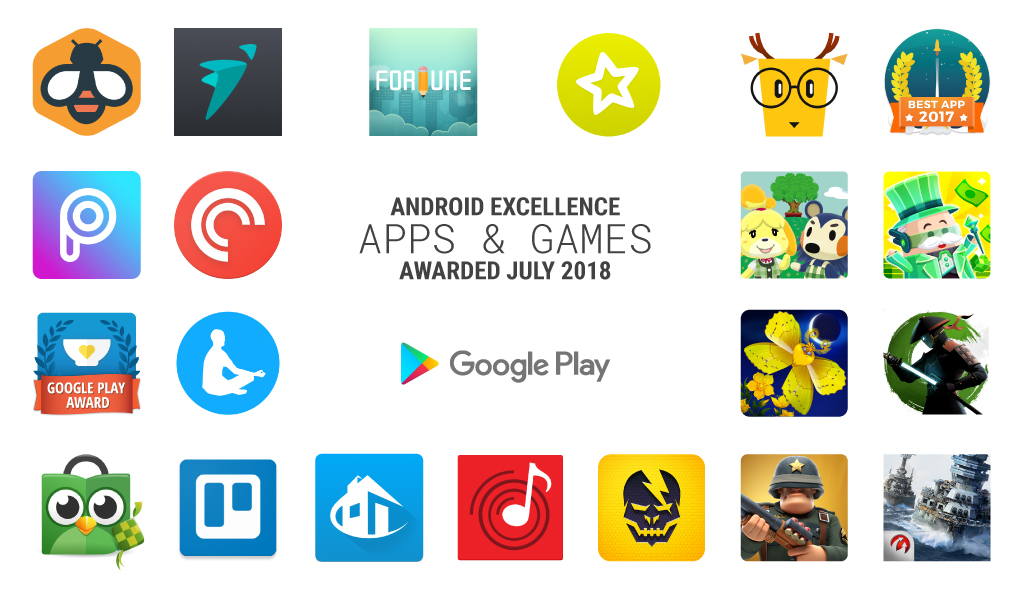 Posted by Kacey Fahey, Developer Marketing, Google Play
Posted by Kacey Fahey, Developer Marketing, Google Play

